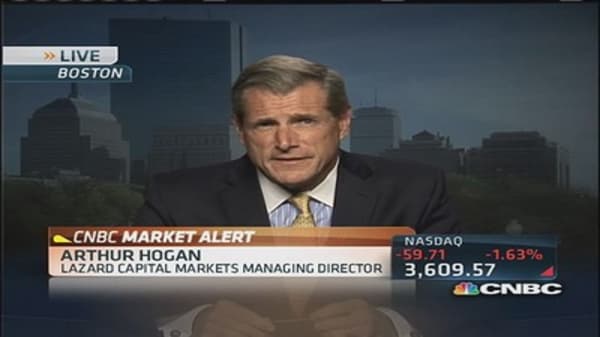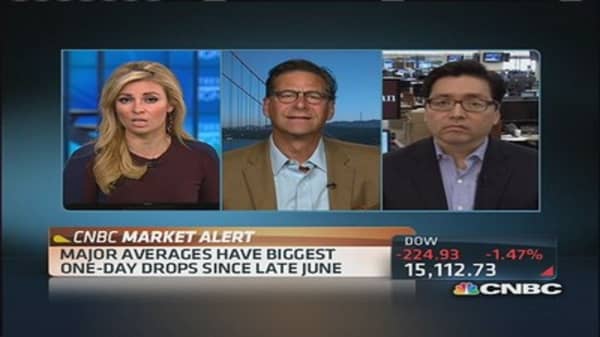"The S&P's tight range of the last 13 trading days bounded by 1,709 to 1,682 has been clearly broken," wrote Elliot Spar, market strategist at Stifel Nicolaus. "The decline of the last few days is the averages catching up on the downside to the correction that many leading sectors and stocks have been going through for the last two months. I expect the 1,650 area on the S&P to stem this decline."
On the economic front, manufacturing growth in New York state and the mid-Atlantic region weakened in August, according to the New York Federal Reserve and the Philadelphia Federal Reserve. And industrial production was unchanged in July as a decline in manufacturing output and utilities counteracted an uptick in mining activity, according to the Federal Reserve.
Consumer prices edged up 0.2 percent in July, matching expectations, according to the Labor Department.
On the upside, weekly jobless claims fell 15,000 to a seasonally adjusted 320,000, hitting the lowest level in nearly six years, according to the Labor Department. Economists polled by Reuters had expected a reading of 335,000.
(Read more: The really bad newsbehind the jobless claims drop)
And homebuilder confidence rose near an eight-year high in August, according to the National Association of Home Builders. Homebuilders including Lennar and DRHorton turned higher following the report.
Earlier, St. Louis Fed President James Bullard reiterated his comments from Wednesday that the central bank should wait for further evidence that the economy is firming before winding down its asset-purchase program.
"The committee still needs to see more data on macroeconomic performance from the second half of 2013 before making a judgement in this matter," said Bullard in prepared remarks at an event hosted by the St. Louis Fed.
(Read more: Worst case for Fed taper: mere market 'indigestion'?)





